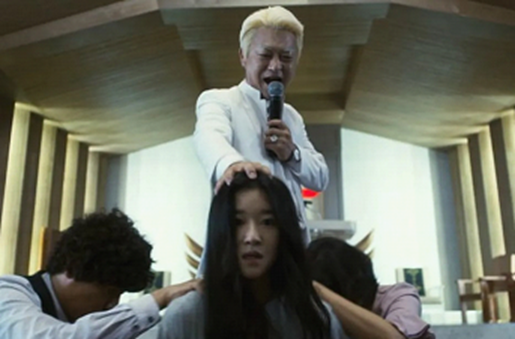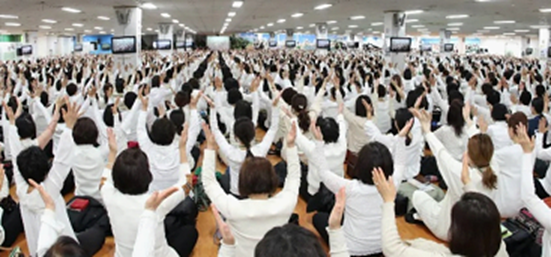Korea has gained notoriety for its surprisingly high number of self-proclaimed messiahs and the proliferation of cult groups within its borders. These enigmatic organizations employ sophisticated deception and persuasion techniques to lure unsuspecting individuals into their fold. In this article, we look into the peculiar phenomenon of cults in Korea, shedding light on their recruitment tactics and offering valuable insights to help readers avoid falling victim to their allure. From street approaches to exceptional interest and elusive conversion motives, we uncover the hidden truths behind these secretive groups. Join us on this small journey as we take a peek at the mysteries of cults in Korea.
What Is a Cult and Why So Many In Korea?
The term "cult" is controversial and often rejected by followers of such groups. The term in Korean is 사이비교회. Whether a religious group is considered a cult or a legitimate church can be subjective. Some possible criteria for making this determination include the freedom of affiliation and disaffiliation with the group, transparency in leadership structure, and the group's attitude toward society, with cults typically having a more exclusive and condemnatory attitude.
Experts suggest that cults and religious movements have flourished during traumatic periods in Korean history, such as the Japanese colonial period, the Korean War, and the subsequent decades of military rule. These groups offered comfort, salvation, and a clear ideology to people struggling with a crisis of national identity and uncertainty. In a highly competitive and status-focused society, cults that claim to have unique knowledge of the path to material and spiritual prosperity can resonate with individuals.
South Korea stands out among Asian and developing countries for the prevalence of religious cults. The appeal of these groups reflects certain societal issues, including the search for meaning and a sense of belonging. Many individuals who join cults were previously members of more traditional congregations, indicating a need for community and a sense of purpose that they may not have found elsewhere. The high suicide rate and societal pressures, such as work and academic stress, contribute to the appeal of these fringe churches that offer a sense of community support and belonging.

These groups have faced allegations of violence, financial exploitation, and brainwashing. South Korea's society, characterized by uncertainty, competition, and a focus on status, has provided fertile ground for these cults, offering comfort, salvation, and promises of prosperity. While the exact number of cults is unknown, numerous fringe churches and groups have gained the label. Some leaders claim divine status and promote a form of spiritual nationalism centered on the Korean people. It is estimated that around two million individuals in South Korea are cult followers, raising debates about religious freedom and classification.
It is important to note that individuals who join these groups may exhibit psychological patterns similar to addiction, seeking solace and support within the cult. The persecution and rejection they face from society, churches, and even their own families can strengthen the bonds among cult members. However, it is also recognized that many of these cult leaders are aware of their fraudulent practices deep inside.
Knowledge is Protection: Familiarize Yourself with These 8 Cults
Here is an abridged list of 8 notably famous cults that have become popular in Korea from years past to the present. Understanding their beliefs and practices can help you stay informed and aware of potential risks.
1. Ch'ondogyo: 천도교 / The Beginning
Ch'ondogyo, known as the Teaching of the Heavenly Way, is considered one of Korea's earliest "new religions." Founded by Ch'oe Che U in 1860 under the name Tonghak (Eastern Learning), it is a syncretistic religion that incorporates elements of Confucianism, Buddhism, shamanism, Daoism, and Catholicism. Ch'ondogyo emphasizes the equality of all human beings, stressing human dignity and gender equality. Its followers believe in the divinity within each person and advocate for self-perfection as the path to salvation. While Ch'ondogyo did not seek to overthrow the social order, its revolutionary potential appealed to the marginalized and had a significant influence on democratic and anti-authoritarian thought in Korea. Today, Ch'ondogyo has an estimated following of 50,000 members, although it likely had a larger presence in the past.
2. The Hanol Church: 하놀교회
The Hanol Church, founded by Dr. Shin Jeong-il in 1965, is a Buddhist-inspired religion that emphasizes self-awakening and active social engagement. While the exact number of followers is not mentioned, the religion had approximately 500,000 followers, with 150 churches in the 2000s. Today, the Hanol Church maintains its presence in South Korea, with Dr. Shin's teachings continuing to influence its practices.
The Hanol Church draws its major influences from Buddhism, prioritizing self-awakening similar to the Buddhist teachings. However, it differentiates itself by advocating for active social involvement rather than pursuing a reclusive path to spiritual enlightenment. With a focus on promoting brightness, righteousness, harmony, and truth, the Hanol Church seeks to engage with society while adhering to Buddhist principles. It is not explicitly identified as a Christian, Buddhist, or shamanistic church but rather a religion that aligns itself with Buddhist ideals while embracing its own unique approach to spirituality and social engagement.

3. The Unification Church: 통일교회
This church is also known as the Holy Spirit Association for the Unification of World Christianity or the "Moonies," is a religious movement founded by Sun Myung Moon in South Korea in 1954. With an estimated membership that is difficult to ascertain, the Unification Church has a presence in more than 100 countries. The church gained attention for its teachings of a unique Christian theology and its practice of mass weddings. Moon, born in 1920, claimed to have received a vision from Jesus Christ instructing him to complete Christ's unfinished work. Despite facing controversies, including accusations of being a cult and legal issues such as tax evasion, the Unification Church continued to expand internationally and established various organizations aligned with Moon's ideals. Moon passed away in 2012, leaving behind a complex legacy and an indeterminate number of followers.
4. Good News Mission: 긍뉘스미션
Good News Mission is a South Korean Christian-based new religious movement established in 1971 by Pastor Park Ock-soo. It originated as a missionary school and has since grown to include 178 churches in South Korea and 582 international churches. The movement focuses on evangelism, missionary training, and sending pastors and missionaries worldwide. However, it has faced criticisms and controversies, including allegations of misleading recruitment practices and claims of controlling leadership. Some former members and pastors have labeled it as a cult. The Good News Mission emphasizes the concept of original sin, leading to debates about the extent of personal sin and the need for confession. Despite the criticisms, the organization remains Trinitarian, Reformed, and emphasizes salvation by grace through faith in Jesus Christ.
5. Manmin Central Church: 만민중앙교회
The Manmin Central Church, established in 1982 by Pastor Lee Jae-rock Lee with 12 initial followers, grew to encompass 130,000 members by 2018. While some regarded Pastor Lee as a divine being with miraculous powers, mainstream Christian organizations condemned the church as heretical due to its claims of miracle healing. The church faced criticism for its belief in Pastor Lee's alleged anointing and his self-deification. Pastor Lee's ordination by Jesus Korea Holiness Church was followed by his expulsion for advocating mysticism, prompting him to establish his own church. The Manmin Central Church gained attention for large evangelical gatherings held worldwide but also faced violence from followers defending their leader. The church's websites featured accounts of miracle cures attributed to Pastor Lee, with members carrying blessed handkerchiefs and believing in the healing power of water from his hometown. Controversial claims included alleged prayers to stop hurricanes and encounters with heavenly beings arriving on UFOs, as mentioned in sermons available online.
6. Shincheonji: 신천지
Shincheonji, South Korea's largest Christian fringe group, boasts a membership of 200,000 individuals. Known for its controversial practices, Shincheonji members actively attend traditional churches to recruit new followers. As a result, many churches in South Korea have implemented measures to restrict Shincheonji members' access. Concerns have been raised about the group's teachings, such as advocating for divorce from spouses and advising people to abandon their studies and jobs. Critics argue that the government has been relatively passive in addressing such groups, citing the country's emphasis on religious freedom. Personal accounts reveal the psychological toll on individuals who try to leave Shincheonji, including isolation, depression, and even suicidal tendencies. Families and counselors have intervened to help members break free from the group's influence, often highlighting the group's outlandish claims, such as their leader's supposed immortality as the second coming of Jesus Christ.

7. Salvation Sect (Evangelical Baptist Church of Korea): 구원파 (교회명: 한국복음침례회)
The Salvation Sect, also known as the Evangelical Baptist Church of Korea or Guwonpa, is a Christian-based new religion or cult founded in 1962 by Yoo Byung-eun and Pastor Kwon Shin-chan. With varying estimates of followers ranging from 10,000 to 200,000 worldwide, the church teaches doctrines that differ from mainstream Christianity. It emphasizes the concept that once a person is saved by God, they are permanently detached from future sins and guaranteed a path to heaven, placing less emphasis on repentance. The church has faced criticism from conservative Christian denominations and has been labeled as a cult. Some followers consider Yoo a messianic figure, while others view him solely as a church leader.
8. Providence (Jesus Morning Star): 예수아침별교회 (JMS)
Providence, also known as Jesus Morning Star (JMS), is a prominent new religious movement founded by Jung Myung-Seok in 1980. Initially emerging as a breakaway group from the Unification Church, Providence gained notoriety when its leader, Jung, was convicted in 2009 and sentenced to 10 years in prison for rape and sexual assault against female followers. The sect has been associated with various names such as Jesus Morning Star, Setsuri, International Christian Association, and more. Influenced by the Unification Church, Providence identifies itself as a Christian-based organization. Despite accusations of rape, fraud, and embezzlement, Jung lived as a fugitive before being arrested in 2007. The group has faced criticism and allegations of being a cult, with reports of controlling practices such as cutting ties with families. While the organization denies being a cult and claims to be a regular religious group, former members and critics highlight concerns regarding its operations and the behavior of its leader.
How Do You Know When A Cult Member Approaches You?
Korea is known for having a disproportionately high number of self-proclaimed messiahs, and these individuals may employ sophisticated deception and persuasion techniques to attract followers. As a foreigner in Korea, it can be unclear to distinguish their true intentions. It is natural to feel good about having someone to talk to in a foreign country. However, it is important to keep certain things in mind to stay aware of the situation.

The Street Approach
Cults in Korea often recruit in public rather than knocking on doors. They may approach individuals with surveys, donation requests, event invitations, or simple requests for directions. It's important to be cautious as they may try to find personal information about you to target you more effectively, particularly if you are a foreigner living in a small town.
Showing Exceptionally Interest In You
Cults have significant financial and human resources at their disposal. They may use a persuasion technique called "love bombing," where they shower individuals with forced affection and attention. However, these friendships are often conditional on further involvement with the cult and may not be genuine. Cult-run events may constantly feature photo opportunities, and members may find themselves always being filmed, even when surrounded by more senior members.
Empty Promises and Hollow Messages
Instead of presenting the leader as an undying messiah, cults may introduce them as prominent peace activists, healers, or philanthropists. However, behind this positive facade, cults often operate as autocratic groups, primarily serving the leader's gratification.
Not Always Seeking Conversion
Cult recruiters may not explicitly try to convert individuals. Instead, they may seek to involve them in other capacities, especially when it comes to foreigners. Some cults use secular fronts to attract foreigners who may serve as seat fillers and unknowingly contribute to the cult's propaganda. Foreign members can be exploited to victimize Korean members, and seemingly free offerings like Korean language classes may come with hidden expectations.
Deception
Some cults hide their true nature by operating through front groups. They may pose as Bible study groups, volunteer organizations, or recreational clubs to attract potential recruits. Former members have reported that they were not informed of the cult's name or leader until well into their involvement.

Expat Guide Korea writing staff: Lance Graney
Source: https://expatguidekorea.com/article/all-about-cults-in-korea-deception-persuasion-and-self-proclaimed-messiahs.html






